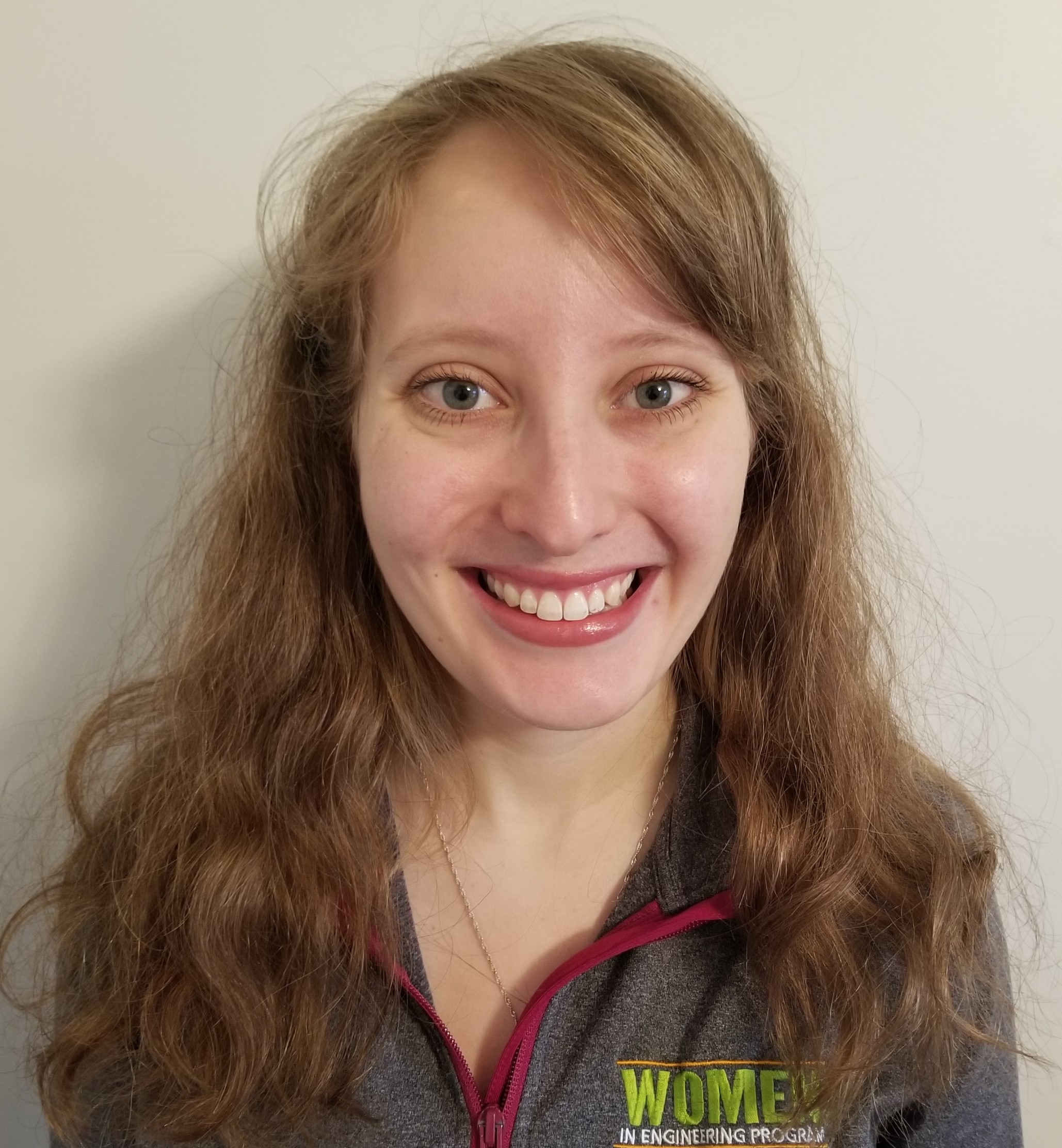ChE graduate student Caralyn Stevenson awarded Sandia National Laboratory fellowship
 Davidson School of Chemical Engineering graduate student Caralyn Stevenson (left) has been selected by Sandia National Laboratories for a research fellowship to support a project in the Materials Science. Stevenson was chosen for the Sandia Academic Alliance Initiative for Research & Career Opportunities for Women in Microsystems, Nanotechnology & Materials program, which supports Sandia Labs projects.
Davidson School of Chemical Engineering graduate student Caralyn Stevenson (left) has been selected by Sandia National Laboratories for a research fellowship to support a project in the Materials Science. Stevenson was chosen for the Sandia Academic Alliance Initiative for Research & Career Opportunities for Women in Microsystems, Nanotechnology & Materials program, which supports Sandia Labs projects.
The Sandia Academic Alliance (SAA) Program aims to solve significant problems the lab could not address alone by partnering with universities that possess key academic disciplines, relevant research capabilities, and a strong commitment to national security. The program provides enormous potential benefits for Sandia, the partner universities, all involved researchers, and for students interested in cutting-edge Laboratory Directed Research and Development. Universities currently in the Academic Alliance Program include Georgia Tech, Purdue University, University of Illinois at Urbana-Champaign, University of New Mexico, and University of Texas at Austin.
Stevenson’s research with Sandia is focused on studying the effect of humidity towards crack growth propagation in silica glass. “My dissertation work focuses on quantifying the effects of particle size, shape, and topography towards powder adhesion through a method called the enhanced centrifuge method,” explained Stevenson. “I am using this method to study the effect of humidity towards silica particle adhesion. This work will provide insight into how humidity is encouraging or inhibiting silica crack growth propagation.”
Stevenson is a fourth-year graduate student studying with advisor Dr. Stephen Beaudoin, Professor of Chemical Engineering. Her research is in the areas of particle adhesion and powder technology which is relevant to a number of industries that include defense and pharmaceuticals. Stevenson is also a part of the Purdue Women in Engineering Program - Graduate Women in Engineering Network (GWEN) leadership team. After completing her PhD, Stevenson plans to find a research and development position in industry. She also plans to remain involved in programs similar to GWEN with the purpose of encouraging minorities in STEM.
Learn more about the Davidson School of Chemical Engineering: https://engineering.purdue.edu/ChE
Learn more about Sandia National Laboratories: https://www.sandia.gov/index.html
Source: Caralyn Stevenson, ccoultas@purdue.edu
